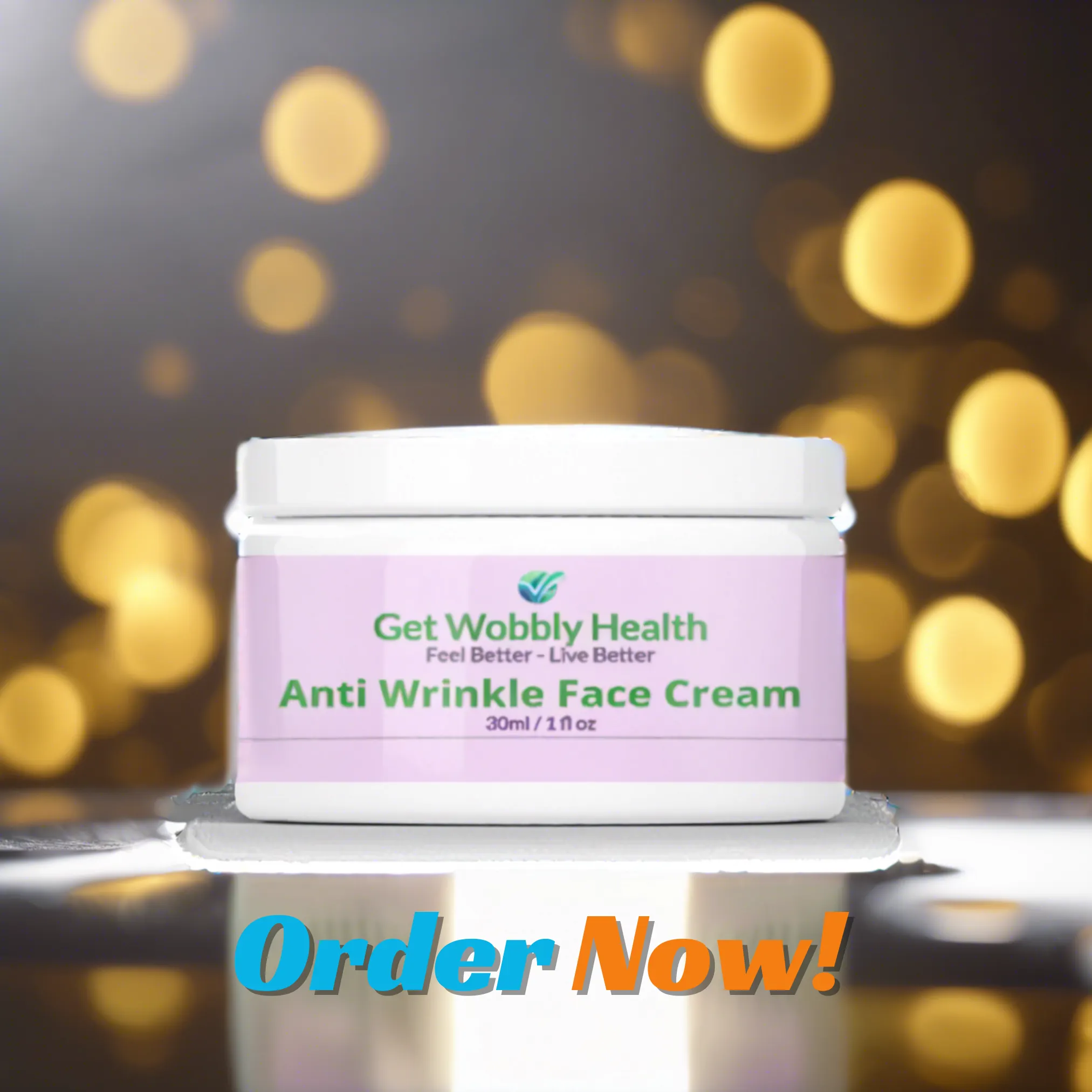What Are the Best Ways to Protect Your Skin from Environmental Damage?
What Are the Best Ways to Protect Your Skin from Environmental Damage?
Adverse environmental conditions such as pollution, harsh sunlight, and extreme weather can wreak havoc on our skin. It is essential to take proactive steps to shield our skin from these dangerous elements. Thankfully, there are several measures we can take to safeguard our skin from harmful environmental damage. Here are some effective ways to protect your skin and keep it looking healthy and radiant.
First and foremost, it is crucial to always wear sunscreen with an adequate SPF before stepping outside, even on overcast days. Sun damage is one of the leading causes of premature aging and skin cancer, so protecting your skin from harmful UV rays is of utmost importance. Additionally, incorporating antioxidants into your skincare routine can help neutralize free radicals caused by environmental pollutants. Finally, maintaining a healthy diet and staying hydrated are also crucial in preserving the overall health and appearance of your skin.
Key Takeaways:
- Use sunscreen daily: Protect your skin from harmful UV rays by applying sunscreen with at least SPF 30 every day, regardless of the weather.
- Wear protective clothing: Cover up with long-sleeved shirts, hats, and sunglasses to shield your skin from environmental damage.
- Stay in the shade: Seek shade, especially during peak sun hours, to minimize exposure to UV rays and reduce the risk of sunburn.
- Hydrate and moisturize: Keep your skin hydrated and nourished with moisturizers and drinking plenty of water to maintain its natural barrier against environmental pollutants.
- Use antioxidants: Incorporate antioxidants like Vitamin C and E in your skincare routine to fight against free radicals caused by environmental damage.
Understanding Environmental Skin Damage
If we want to effectively protect our skin from environmental damage, it’s crucial to understand the various ways in which the environment can negatively impact our skin. Environmental skin damage refers to the harm caused to our skin by the sun’s rays, pollutants and toxins in the air, climate and weather-related factors, and indoor hazards.
The Sun’s Rays and UV Exposure
Sun’s UV rays are one of the most common and dangerous sources of environmental skin damage. Prolonged exposure to UV rays can lead to sunburn, premature aging, and an increased risk of skin cancer. It’s important to protect your skin from the sun by using sunscreens with high SPF, wearing protective clothing, and seeking shade during peak sun hours.
Pollutants and Toxins in the Air
Skin can also be negatively affected by pollutants and toxins present in the air. These harmful substances can lead to skin irritation, inflammation, and accelerated aging. Pollutants such as car exhaust, industrial emissions, and cigarette smoke can all contribute to environmental skin damage.
To protect your skin from these pollutants, consider using skincare products with antioxidant properties that can help neutralize the effects of environmental toxins. Additionally, cleansing your skin thoroughly at the end of each day can help remove any pollutants that have accumulated on the skin’s surface.
Climate and Weather-Related Damage
Climate and weather-related factors, such as extreme temperatures, wind, and dry air, can also have a negative impact on skin health. Prolonged exposure to harsh weather conditions can lead to dehydration, irritation, and sensitivity. Suns protection measures, such as using moisturizers to hydrate the skin and wearing protective clothing, can help minimize the damage caused by climate and weather-related factors.
To effectively protect your skin, it’s important to pay attention to temperature and humidity levels in your environment, and adjust your skincare routine accordingly.
Indoor Hazards to Skin Health
Indoor environments can also pose hazards to skin health. Factors such as air conditioning, heating, and indoor pollutants can contribute to skin dryness, irritation, and damage. It’s important to maintain a balanced indoor environment and use humidifiers if necessary to prevent excessive dryness.
Daily Skincare Habits
For healthy and protected skin, it's important to develop daily skincare habits that help defend against environmental damage and maintain a strong skin barrier. Consistency is key, so making these habits a regular part of your routine can make a significant difference in the health and appearance of your skin.
The Importance of Cleansing
Habits like cleansing your skin daily remove dirt, oil, and pollutants that can accumulate on the skin's surface throughout the day. This helps to prevent clogged pores and reduce the risk of breakouts and inflammation. Choose a gentle cleanser that effectively removes impurities without stripping the skin of its natural oils.
Moisturizing Strategies for Barrier Protection
Protection against environmental damage starts with maintaining a healthy skin barrier, and moisturizing is essential for this. Using a moisturizer with hydrating ingredients like hyaluronic acid can help reinforce the skin's natural defenses and keep it properly hydrated. By keeping your skin barrier strong, you can reduce the risk of sensitivity and damage from environmental factors.
Strategies like applying moisturizer to damp skin after cleansing can help seal in moisture and improve the effectiveness of the product. Additionally, using a moisturizer with antioxidants can provide added protection against free radicals that can contribute to premature aging.
SPF: Your Daily Shield Against the Sun
Skincare experts agree that daily use of sunscreen with broad-spectrum protection is essential for defending the skin against harmful UV rays. Sun exposure can lead to premature aging, sunburn, and an increased risk of skin cancer. Incorporating SPF into your daily skincare routine is a simple yet powerful way to protect your skin from environmental damage.
Shielding your skin with sunscreen not only protects against UV damage, but it also helps maintain a youthful appearance and reduces the risk of hyperpigmentation. Look for a sunscreen with an SPF of at least 30 and reapply it every two hours when spending extended time outdoors.
The Role of Antioxidants
Not only do antioxidants play a crucial role in maintaining overall health, but they are also essential for protecting our skin from environmental damage. The oxidative stress caused by free radicals in our environment can lead to premature aging, wrinkles, and even skin cancer. By incorporating antioxidants into our skincare routine and diet, we can help counteract these negative effects and keep our skin looking and feeling healthy.
How Antioxidants Work to Protect Skin
One of the primary roles of antioxidants is to neutralize the harmful effects of free radicals. Free radicals are unstable molecules that can damage our skin cells, leading to inflammation and signs of aging. Antioxidants work by donating electrons to these free radicals, stabilizing them and preventing them from causing further harm to our skin. In doing so, antioxidants help to reduce the risk of UV damage, brighten the complexion, and improve overall skin tone and texture.
Another way antioxidants protect our skin is by boosting our skin's natural defense mechanisms. They can help strengthen the skin's barrier function, making it more resilient against environmental stressors. This can help prevent moisture loss, reduce inflammation, and promote skin repair.
Topical Antioxidants to Consider
The market is flooded with skincare products that claim to contain antioxidants, but it's essential to know which ones are the most effective. For instance, vitamin C, vitamin E, green tea extract, and coenzyme Q10 are some of the top topical antioxidants to consider. These ingredients have been extensively researched and proven to help protect the skin from environmental damage.
The key is to look for products with a high concentration of antioxidants and stable formulations that allow the ingredients to penetrate the skin effectively. By incorporating these topical antioxidants into your daily skincare routine, you can give your skin an extra layer of defense against environmental stressors.
Dietary Sources of Antioxidants
On top of using topical antioxidants, we can also obtain a significant amount of these powerful compounds through our diet. Fruits, vegetables, nuts, and seeds are all rich sources of antioxidants that can benefit not only our overall health but also the health of our skin. By including a variety of colorful produce in our meals, we can ensure that we are getting a diverse range of antioxidants to support our skin's protective functions.
Sources of antioxidants such as vitamin C, vitamin E, beta-carotene, and selenium can contribute to the overall health and appearance of our skin when consumed regularly as part of a balanced diet.
Protective Clothing and Accessories
Your skin is the first line of defense against environmental damage, so it's essential to protect it from harmful UV rays, pollution, and other external factors. One of the best ways to do this is by wearing protective clothing and accessories that can shield your skin from these elements.
Choosing the Right Garments
With so many options available, it's important to choose the right garments that offer UPF (Ultraviolet Protection Factor) to effectively block harmful UV rays. Look for clothing made from tightly woven fabrics that provide better protection.
Additionally, opt for darker colors and long sleeves for added defense against the sun's rays. Don't forget to wear a wide-brimmed hat and sunglasses to protect your face, neck, and eyes from UV exposure.
Sun-Protective Accessories for Extra Care
To complement your sun-protective clothing, consider adding accessories like UV-protective umbrellas and gloves to provide additional coverage for your skin. Many brands now offer stylish and functional options that can help shield your skin from the sun's harmful rays, especially during outdoor activities or prolonged sun exposure. It's an extra step in caring for your skin and minimizing the risk of sun damage.
Professional Skin Treatments
Despite taking diligent care of your skin at home, sometimes professional help is needed to combat environmental damage. Professional skin treatments can provide an extra layer of protection and repair for your skin, helping to reverse the effects of sun exposure, pollution, and other environmental stressors.
Regular Check-ups and Skin Evaluations
Professional dermatologists and skincare specialists can provide regular check-ups and skin evaluations to assess the condition of your skin and identify any signs of environmental damage. These professionals have the knowledge and expertise to recommend the most effective treatments and products for your specific skin concerns. Regular evaluations can help catch potential problems early and prevent further damage.
Advanced Treatments for Sun-Damaged Skin
Skin treatments for sun-damaged skin can include a variety of advanced procedures designed to repair and rejuvenate the skin. Some of these treatments may include:
- Chemical peels: Professional exfoliation techniques to improve skin texture and tone
- Laser therapy: Targeted treatment to reduce sun spots and pigmentation
- Microneedling: Stimulates collagen production and can improve sun damage
To ensure the best results, it's important to consult with a professional to determine the most appropriate treatment for your skin type and level of sun damage.
Restoration and Repair Options
Options for restoring and repairing sun-damaged skin may include specialized skincare products, prescription medications, and in-office procedures. Professional guidance can help you navigate the many options available and create a personalized plan for skin repair and rejuvenation.
Sun-damaged skin can benefit from treatments such as antioxidant-rich serums, retinoids, and medical-grade skincare products that can aid in repair and rejuvenation. Seeking professional advice for restoration and repair can help ensure that you are using the most effective and safe products for your skin.
Lifestyle Choices for Healthier Skin
Now, let's talk about lifestyle choices that can greatly impact the health of your skin. The way you live your life can have a significant effect on the way your skin looks and feels, so it's important to make positive choices that will benefit your skin in the long run.
Nutrition and Hydration Tips
Lifestyle choices such as nutrition and hydration play a major role in the health of your skin. Consuming a balanced diet rich in antioxidants and healthy fats can help protect your skin from environmental damage. Additionally, staying hydrated by drinking plenty of water throughout the day can keep your skin looking plump and youthful. Perceiving your diet and water intake as essential parts of your skincare routine can make a significant difference in the overall health of your skin.
Managing Stress and Sleep for Skin Health
Any lifestyle choices that reduce stress and promote a good night's sleep can contribute to healthier skin. Chronic stress can lead to inflammation and premature aging of the skin, so finding ways to manage stress, such as through meditation or exercise, can have a positive impact. Additionally, getting enough quality sleep allows the skin time to repair and regenerate, resulting in a more radiant complexion.
Aiming for a healthy work-life balance and incorporating stress-relieving activities into your daily routine can greatly benefit the health of your skin, reducing the impact of oxidative stress and promoting a more youthful appearance.
Physical Activity's Role in Skin Protection
Physical activity is another important lifestyle choice that can contribute to better skin health. Exercise increases circulation, which helps to flush toxins from the skin and deliver nutrients and oxygen to the skin cells. Regular physical activity can also reduce inflammation and promote a more youthful complexion.
This healthy habit not only benefits your overall health but also plays an important role in protecting your skin from environmental damage, making it an essential part of any skincare routine. Incorporating regular exercise can lead to a noticeable improvement in the appearance and health of your skin over time.
Staying Informed – The Latest in Skin Protection
To protect your skin from environmental damage, it's crucial to stay informed about the latest developments in skin protection. Keeping up with new research and innovations can help you stay ahead of the game and ensure that your skincare routine is as effective as possible.
New Research on Skin Protection
Skin protection is a constantly evolving field, with ongoing research continuously uncovering new insights into how environmental factors impact our skin. Recent studies have shown that pollution and blue light from electronic devices can contribute to premature aging and skin damage, prompting skincare experts to develop new products and strategies to combat these threats.
Sunscreen Innovations and Developments
Latest advancements in sunscreen technology have led to the development of products that offer even greater protection against environmental damage. New formulations incorporating antioxidants and infrared protection are now available, providing a more comprehensive shield against harmful UV rays and free radicals.
Developments in sunscreen also include the creation of products specifically designed for different skin types and activities, ensuring that everyone can find the perfect sunscreen for their individual needs.
The Future of Environmental Skin Damage Prevention
Prevention is key when it comes to protecting your skin from environmental damage. As our understanding of the factors that contribute to skin aging and damage continues to grow, so does the development of new preventive measures and technologies. By staying informed and remaining open to new strategies, you can ensure that your skin is well-equipped to face the challenges of the modern world.
Plus, with the growing focus on sustainability and eco-friendly skincare, the future of environmental skin damage prevention looks bright, with more emphasis on natural and environmentally responsible ingredients and practices.

Considering all points
When it comes to protecting your skin from environmental damage, there are several effective strategies you can implement to keep your skin healthy and glowing. From applying sunscreen with at least SPF 30 to wearing protective clothing and seeking shade during peak sun exposure times, there are simple yet impactful measures you can take to shield your skin from harmful UV rays.
Additionally, incorporating antioxidant-rich skincare products into your daily routine and practicing good skincare habits, such as cleansing and moisturizing regularly, can help fortify your skin's defenses against environmental stressors. For more tips and advice on how to protect your skin from environmental factors such as pollution and UV rays, you can check out this informative discussion on Quora:
How to protect my skin from environmental factors such as pollution and UV rays.
By prioritizing sun protection, skincare products with antioxidants, and healthy skincare practices, you can effectively minimize environmental damage and maintain healthy, radiant skin for years to come.

FAQ
Q: How can wearing sunscreen help protect my skin from environmental damage?
A: Sunscreen is essential for protecting your skin from harmful UV rays that can cause premature aging, wrinkles, and skin cancer. Look for a broad-spectrum sunscreen with an SPF of 30 or higher and apply it generously every day, even on cloudy days.
Q: Why is it important to stay hydrated to protect your skin?
A: Staying properly hydrated is crucial for maintaining healthy skin. Drinking plenty of water helps your skin stay moisturized and can improve its ability to protect itself from environmental pollutants and irritants.
Q: How can antioxidant-rich skincare products help defend against environmental damage?
A: Antioxidants like vitamin C and E can help neutralize free radicals caused by environmental factors like pollution and UV rays. Look for skincare products containing antioxidant ingredients to help protect and repair your skin.
Q: What role does a healthy diet play in protecting your skin from environmental damage?
A: Eating a balanced, nutrient-rich diet can support healthy skin and provide the vitamins and minerals it needs to defend against environmental damage. Focus on consuming plenty of fruits, vegetables, healthy fats, and lean protein.



